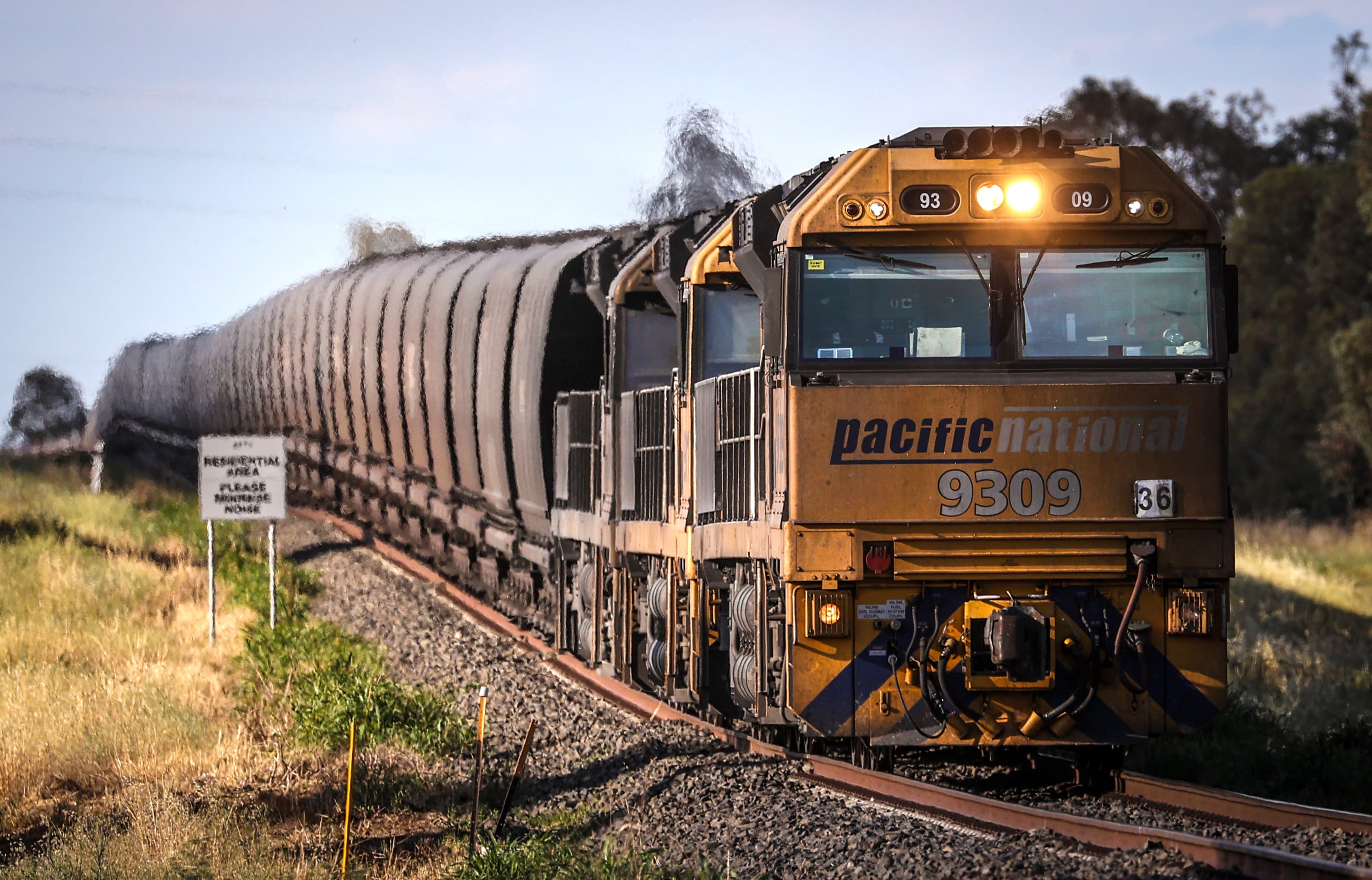More On: china
In Mao's China, people were watched even when they talked in their sleep
China could have up to six more 'illegal police stations' in the US and hundreds all around the world
There Has Been a Sharp Rise in Time Parity
Biden says that US troops will protect Taiwan, but the White House takes back what he said
Hunter Biden says he is poor when he tries to cut child support for his 4-year-old daughter
Due to a coal shortage, China is experiencing its worst power crisis in years. While Australia has the coal Beijing requires, analysts told CNBC that the world's second-largest economy is unlikely to lift an unofficial ban on Australian coal imports anytime soon.
Despite recent media reports, China appears to be releasing small amounts of Australian coal that had been stranded at Chinese ports for months due to the ban.
"Reports that small quantities of Australian coal were allowed to clear customs in China have increased speculation that Chinese authorities will look to relax the import ban on Australian coal," CNBC's Vivek Dhar, mining and energy commodities analyst at Commonwealth Bank of Australia, said.
"We do not believe Chinese authorities will lift China's ban on Australian coal this winter," he said.
China stopped buying Australian coal late last year. This occurred as trade tensions between the two countries rose following Canberra's support for an international investigation into Beijing's handling of the Covid-19 outbreak.
Prior to that, Australia was a major coal supplier to China, accounting for 38% of Chinese thermal coal imports in 2019.
China is experiencing an energy shortage.
China's power generation is heavily reliant on coal.
At least 20 provinces in the country have reported varying degrees of power outages since mid-August. This was due to a number of factors, including a lack of coal supplies, tougher government mandates to reduce emissions, and increased manufacturing demand as the global economy recovered from pandemic lows.
According to reports, officials have urged top state-owned energy companies to secure supplies for the upcoming winter at all costs.
Analysts believe Beijing will not ease import restrictions on Australia anytime soon.
Instead, they predict that China will increase its own coal production, tap into other international suppliers, and pressure its industries to reduce output and emissions.
According to Rory Simington, principal analyst at Wood Mackenzie, there is no indication that China will allow companies to purchase new shipments of Australian coal.
China is likely to push Indonesian suppliers for more coal but they are nearly at peak capacity.
Abhinav Gupta
BRAEMAR ACM
“The political situation hasn’t improved at all,” he told CNBC’s “Squawk Box Asia” in mid-October. “This is largely a political issue and not an economic one, and, yeah, no signs of any easing on the ban on new cargoes.”
Beijing may also look to other countries for more coal.
“China is likely to push Indonesian suppliers for more coal but they are nearly at peak capacity,” Abhinav Gupta, a dry cargo research analyst at shipbroking firm Braemar ACM, told CNBC earlier this month.
“China has also been trying to get more Mongolian and Russian coal to cater to its demand; however, there is some competitive pressure for Russian coal from the European buyers. We have also seen China buying more coal from suppliers in the Atlantic, such as US and Colombia,” Gupta said by email.
According to Dhar of Commonwealth Bank, despite the informal ban on Australia, China's thermal coal imports have held up "fairly well" due to increased supply from Indonesia and Russia. According to him, Indonesia accounted for roughly 57 percent of China's thermal coal imports between January and August.
The Effect on Australia
According to commodity price provider Argus, Australian thermal coal at Newcastle Port, which serves as a benchmark for the Asian market, has increased this year despite China's import ban.
"Demand in North Asia ahead of this winter is the main driver of current thermal coal prices, particularly from Australia," said Dhar. He added that Australian coal prices would likely depend on how cold the upcoming winter turns out.

According to Shane Oliver, head of investment strategy and chief economist at AMP Capital, elevated coal prices are unlikely to fall immediately even if China lifts the import ban on Australian coal.
"I doubt that lifting the import ban would have much of an impact on Australian producers because they would simply redirect back to China and still get the same price," he wrote in an email. "Ultimately, the sky-high prices will not be sustained, but they may remain high for some time."
Despite the coal ban and a sharp drop in iron ore prices, Australia's export earnings have held up well, according to Oliver.
According to Dhar of Commonwealth Bank, if Beijing resumes buying coal from Canberra, it will only increase demand for Australian coal and support prices even further.
Nonetheless, Australian officials have chastised China for imposing trade sanctions on other exports such as wine and barley.
In a statement to the World Trade Organization last week, Australia said: “China says that these actions reflect legitimate trade concerns; but there is a growing body of information that demonstrates China’s actions are motivated by political considerations.”





















